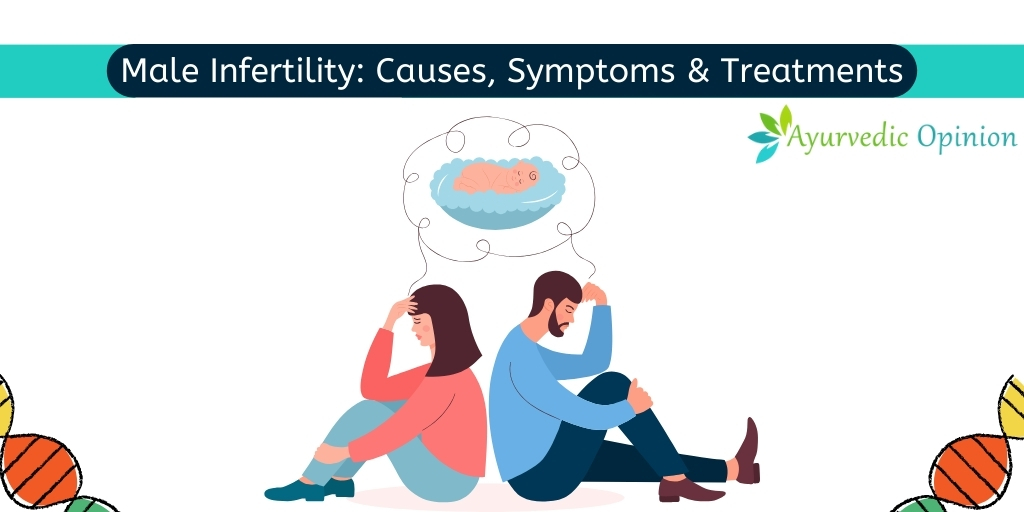For couples who are attempting to conceive, male infertility can be a difficult problem that frequently results in emotional discomfort and confusion. It is crucial to comprehend the causes, symptoms, and accessible therapies to successfully manage this issue. We’ll go into great detail about male infertility treatment in this post, covering its causes, typical symptoms, and possible treatments.
Understanding Male Infertility
Gratitude The incapacity of a man to conceive a child with a fertile female partner following consistent, unprotected sexual activity for a year or more is known as male infertility. Worldwide, it is estimated that 40–50% of infertility cases are caused by male factors. This disorder may result from several things, such as irregularities in the creation of sperm, obstructions that stop sperm from being delivered, or underlying illnesses that impair reproductive function.
Causes of Male Infertility
Sperm Abnormalities: Anomalies in the generation of sperm, such as low sperm count (oligospermia), poor sperm motility (asthenospermia), or aberrant sperm morphology (teratospermia), are among the main reasons for male infertility.
Varicocele: A varicocele is an enlargement of the veins draining the testicles, which may have an impact on the quantity and quality of sperm produced.
Hormonal imbalances: Problems with hormone levels, like low testosterone or thyroid issues, might interfere with the development of sperm and the ability to conceive.
Genetic Factors: By affecting sperm function or production, genetic disorders such as Y chromosomal deletions or Klinefelter syndrome can cause infertility.
Lifestyle Factors: Several lifestyle decisions, such as smoking, binge drinking, using drugs, being obese, and being exposed to chemicals in the environment, can have a detrimental effect on the quality and viability of sperm.
Medical Conditions: Male fertility may be impacted by illnesses like diabetes, infections, autoimmune disorders, and sexually transmitted diseases (STDs).
Testicular Trauma or Surgery: Damage to the testicles or previous genital surgery might cause problems with the release or generation of sperm.
Male infertility symptoms: While infertility in men may not always be evident, several indicators may point to underlying problems with conception, such as:
Infertility: The incapacity to become pregnant following a year of consistent, unprotected sexual activity.
Abnormal semen analysis: Low sperm count, poor motility, or aberrant sperm morphology are indicated by a semen analysis.
Pain or swelling: Varicocele or an infection are two underlying disorders that may be indicated by pain, swelling, or a lump in the testicle area.
Hormonal imbalances: A decrease in libido, erectile dysfunction, or irregularities in the growth of hair are examples of symptoms that may point to hormonal imbalances that impact fertility.
Men’s Infertility Treatments
Changes in Lifestyle: Overall fertility and sperm quality can be increased by leading a healthy lifestyle. This includes keeping up a healthy diet, exercising frequently, abstaining from tobacco and excessive alcohol use, and properly handling stress.
Medication: To induce sperm production, doctors may prescribe hormone replacement therapy or drugs such as clomiphene citrate if hormonal imbalances are found.
Surgical Interventions: To treat structural defects, such as varicocele repair or surgical sperm retrieval for assisted reproductive techniques like intracytoplasmic sperm injection (ICSI) or in vitro fertilization (IVF), surgical operations may be advised.
Assisted Reproductive Technologies (ART): ART techniques, such as IVF and ICSI, circumvent natural barriers to conception by fertilizing eggs with sperm outside the body and transferring the resulting embryos into the woman’s uterus.
Sperm Donor: Using donor sperm for assisted reproduction may be a possibility in cases of severe male infertility where sperm production is significantly reduced.
In conclusion, male infertility is a prevalent but sometimes disregarded condition that can have a big influence on a couple’s path to becoming parents. Individuals and couples can effectively handle reproductive issues by being proactive in their approach and gaining knowledge about the causes, symptoms, and available therapies for male infertility. The likelihood of obtaining a healthy pregnancy and realizing the dream of motherhood can be increased by consulting with fertility specialists and looking into suitable treatment choices. Recall that infertility is a medical disease that is frequently curable with the appropriate care and assistance.
Our goal is to arm individuals and couples with the knowledge necessary to confidently and optimistically manage this part of reproductive health by offering thorough information about male infertility.

